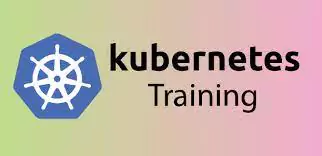Course Curriculum
Course Content
- Understanding the role of Kubernetes in container orchestration and management.
- Exploring the key features, components, and benefits of Kubernetes.
Reviewing containerization concepts and how Docker is commonly used to package applications and dependencies.
Exploring the architecture of Kubernetes, including master and worker nodes, API server, etcd, kubelet, kube-proxy, and more.
Understanding core Kubernetes components such as Pods, Replication Controllers, Services, Deployments, StatefulSets, ConfigMaps, Secrets, and more.
Learning how to deploy applications using Kubernetes resources and scaling them up or down as needed.
Exploring how Kubernetes provides service discovery and load balancing for applications using Services.
Quick Enquiry
Exam & Certification
A Kubernetes certification exam is a standardized assessment that tests your knowledge and practical skills in using Kubernetes for container orchestration and management.
Kubernetes certification validates your expertise and proficiency in Kubernetes, making you more competitive in the job market and demonstrating your commitment to continuous learning.
Some popular Kubernetes certifications include Certified Kubernetes Administrator (CKA), Certified Kubernetes Application Developer (CKAD), Certified Kubernetes Security Specialist (CKS), and Certified Kubernetes Operator (CKO).
Prerequisites can vary based on the certification. Generally, you will need to have a solid understanding of Kubernetes concepts and practical experience with its administration, deployment, and management.
The exam format depends on the certification. Most Kubernetes exams are practical and hands-on, requiring you to complete tasks within a real Kubernetes environment.
Exam durations vary, but they typically range from 2 to 3 hours. Some certifications may provide more time due to the complexity of the tasks.
Many Kubernetes exams are available online and can be taken remotely. However, its important to check the specific certifications details and requirements.
Exam results are usually provided immediately or shortly after completing the exam. You will receive information on whether you passed or failed, along with a score breakdown.
Testimonials
Kubernetes Training FAQ's
Kubernetes training is a program designed to teach individuals how to deploy, manage, and orchestrate containerized applications using the Kubernetes platform.
Kubernetes training is suitable for software developers, DevOps engineers, system administrators, IT professionals, and anyone interested in learning how to manage containerized applications using Kubernetes.
Training covers Kubernetes architecture, core components, application deployment, scaling, networking, security, monitoring, and more.
While prior containerization knowledge is helpful, some training programs offer introductory content to help participants understand the basics of containers before diving into Kubernetes.
Kubernetes training is offered in various formats, including in-person workshops, virtual classrooms, online courses, self-paced tutorials, and interactive labs.
Yes, Kubernetes certifications are available, such as Certified Kubernetes Administrator (CKA) and Certified Kubernetes Application Developer (CKAD). Some training programs offer preparation for these exams.
he duration varies based on the training program and the depth of content covered, ranging from a one-day workshop to several weeks of comprehensive training.
Absolutely, Kubernetes skills are highly valued in roles related to software development, DevOps, system administration, and cloud operations.
Both options are available. Online training offers flexibility, while in-person training provides direct interaction with instructors and peers.

.webp)
.webp)


